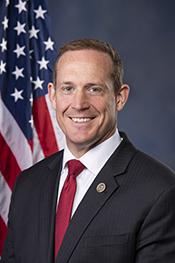0
Enhancing First Response Act
1/26/2024, 6:30 PM
Summary of Bill S 3556
One key aspect of the bill is the allocation of funding for the purchase of new equipment and technology for first responders. This includes items such as body cameras for police officers, updated communication systems for firefighters, and advanced medical equipment for EMTs. By providing these resources, the bill aims to ensure that first responders have the tools they need to effectively and safely respond to emergencies.
In addition to equipment upgrades, the bill also emphasizes the importance of training for first responders. This includes ongoing education on topics such as de-escalation techniques, cultural sensitivity, and mental health awareness. By investing in training programs, the bill aims to improve the overall quality of response from first responders and better serve the communities they protect. Overall, the Enhancing First Response Act seeks to enhance the capabilities of first responders and improve their ability to effectively respond to emergencies. By providing additional resources and training, the bill aims to ensure that first responders are better equipped to handle a wide range of situations and provide the best possible care to those in need.
Congressional Summary of S 3556
Enhancing First Response Act
This bill requires the Federal Communications Commission (FCC) to report on certain activations of the Disaster Information Reporting System (DIRS). DIRS is a reporting system, activated during severe weather and other events impacting communications service, through which communications providers report outages and other degradations to service.
If the system was activated for at least seven days, the FCC must issue a preliminary report that includes information about the number, duration, and nature of all associated outages. The FCC must also hold at least one public field hearing in the area affected by the event, and it must issue a final report that includes recommendations on how to improve the resiliency of affected networks.
Separately, the FCC must publish a general report on (1) the volume and nature of 9-1-1 outages that are not required to be reported under current outage notification rules, and (2) the value to public safety agencies of the inclusion of visual information in outage notifications from communications providers.
The bill also requires the Office of Management and Budget, by 30 days after the bill's enactment, to categorize public safety telecommunicators as a protective service occupation under the Standard Occupational Classification System.
Finally, the Office of the Inspector General of the FCC is directed to publish a report on the implementation of Kari’s Law, which requires multiline telephone systems to be preconfigured to allow users to dial 9-1-1 directly from any phone without dialing any additional code or prefix.





